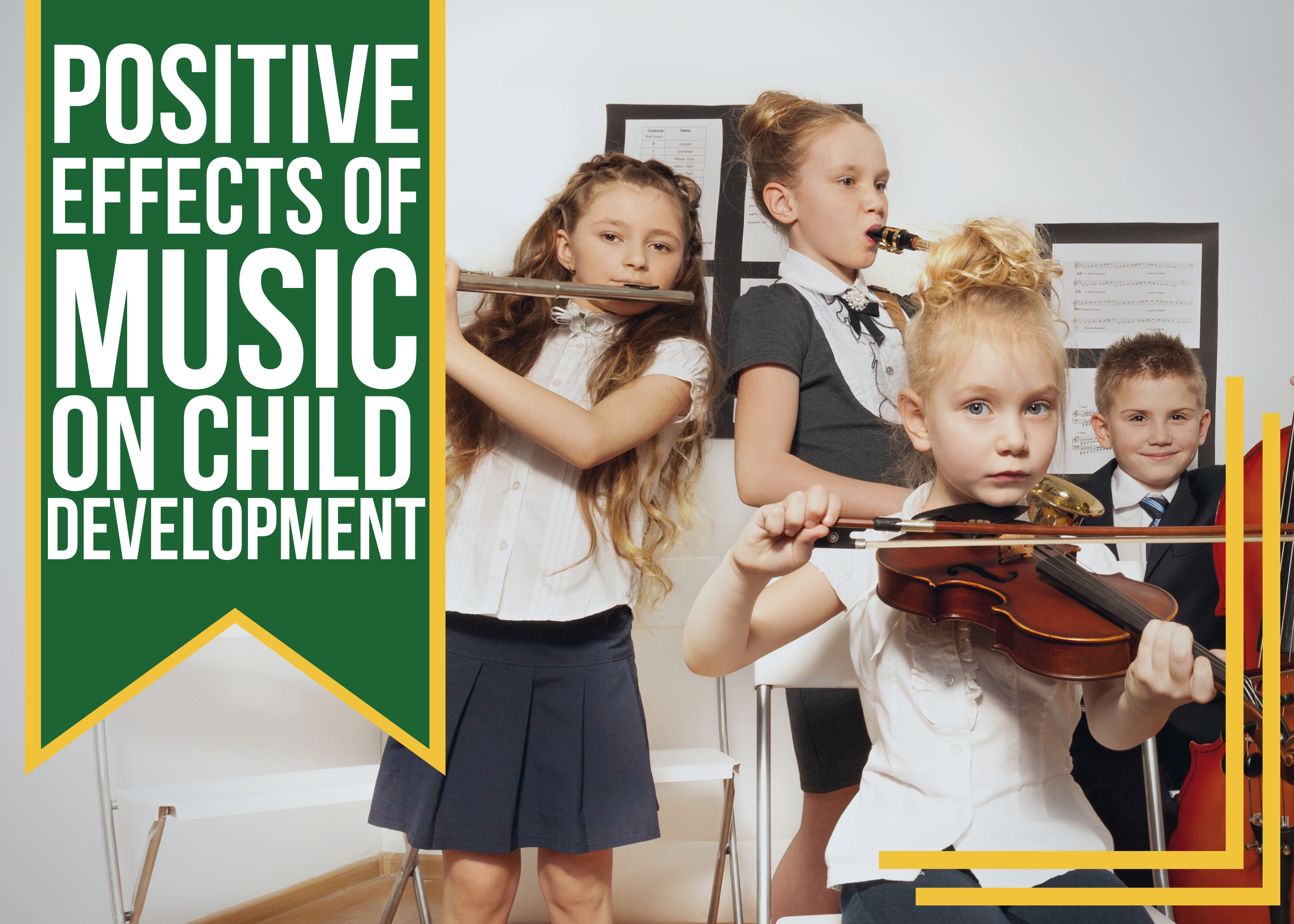Positive Effects of Music on Child Development
Music is a multifaceted tool that can be used to build social skills and foster creativity in children. From the moment they are born, infants absorb the effects of sound through hearing. It affects their physical, cognitive, and emotional development. Musical activities such as singing songs and playing musical instruments have been shown to improve children's language skills. In addition, music has been found to benefit children by increasing their attention spans, stimulating their creativity, and enhancing their memory recall capabilities.
These effects only become more pronounced as children grow older and into adulthood. Music provides an invaluable developmental aid for children today. Incorporating music into your child's life can have many beneficial effects on their development. Let's take a look at some of the ways music can help your little one grow and develop.
Music enhances creativity
Research has shown that music encourages imagination, promotes creative thinking, and exposes children to cultural diversity. Listening to music exposes children to different patterns of sound and melodies. It allows them to think more broadly about ideas. It also allows for the expression of emotions in a safe environment, providing an outlet for communication with adults like parents or teachers. Listening to music also helps children learn timing and multi-tasking skills by playing along with music by tapping their feet or clapping.
It enhances cognitive development
Children are constantly learning new things and developing their cognitive abilities from the moment they're born. The right kind of music can play an important role in that process. Research has shown that musical experiences increase neural connectivity in the brain. This supports better communication between different brain areas responsible for language, motor skills, and higher-level thinking. Recent studies have also revealed that musical activities can help improve a child's memory and sharpen their problem-solving skills.
It develops language skills
Music is full of language elements - words, phrases, rhymes, etc. Therefore, it's no surprise that exposing children to music from an early age can benefit their language development. Research has shown that listening to and playing music during childhood can improve verbal memory and reading ability later in life. It is also believed that singing songs with children helps them identify patterns common to many languages (e.g., rhyming). This may make it easier for them when learning foreign languages or developing reading comprehension skills further down the road.
Music improves motor skills
Did you know that music can actually help your child's physical development? Studies have shown that music can assist with gross and fine motor skills and help develop physical coordination. These effects can be seen in young children learning how to move their bodies to the rhythm of a song or an older child mastering a musical instrument.
Apart from being great fun, playing and listening to music has positive effects on a child's motor coordination. It aids their understanding of where their body should be in space. Music creates opportunities for physical education on different levels and helps children improve visually, audibly, and kinaesthetically.
It builds social-emotional skills
When it comes to social and emotional development, music also has an important role to play. Not only does it provide a platform for collaboration and communication with others. It can also help children learn how to express their emotions in a safe and meaningful way. Studies have shown that listening to music can help reduce loneliness, boost self-esteem, and increase positive mood states like happiness. Music is also an excellent way to build connections between parents and their children as they sing along together or take turns playing instruments.
It develops auditory skills
Young children are already equipped to recognize different pitches, rhythms, and sounds - factors that play a key role in language development. Singing songs or playing musical instruments helps hone these abilities even further by providing opportunities for children to practice hearing and responding to different sounds. Music also serves as a great auditory stimulation, helping children hone their listening skills while they tune into the details of a particular song or melody.
It supports learning and concentration
Listening to the right kind of music can help children focus on their tasks and stay engaged. Research has shown that background music with a steady rhythm can reduce distractions and increase concentration. It can be used as an effective tool for keeping children focused when studying or completing tasks.
It boosts academic performance
Studies have shown that children who are exposed to music from an early age tend to perform better in school than those without such exposure. This is largely due to the effects of music on the brain, which can lead to improved memory, higher concentration, and better academic performance. In addition, studies have linked active engagement with music (e.g., playing an instrument) to even greater benefits when it comes to academic success.
It reduces stress and anxiety
Finally, research has also revealed that music can help reduce anxiety and stress levels in adults and children. Music has a calming effect on our minds and bodies, allowing us to relax while also alleviating any worries or negative emotions we may be feeling.
Ultimately, music has a multitude of positive effects on child development - from improved motor coordination and auditory skills to enhanced creativity and academic performance. It's important to keep in mind that different types of music can have different effects too, so it's best to find the right kind of music for your little one!
Our innovative small group programs at Mrs. Myers' Learning Lab are framed around children's natural high energy and individual interests, technology, music, and games. Your child will engage in reading and learning activities that feel like play! Learning this way expedites results. Visit us to learn more!





